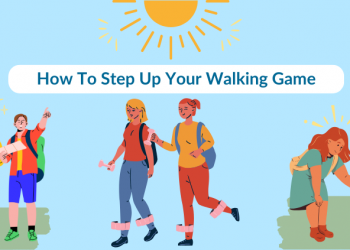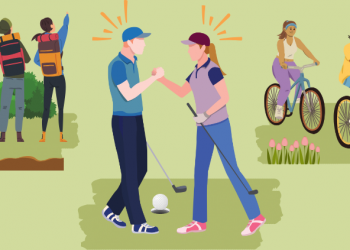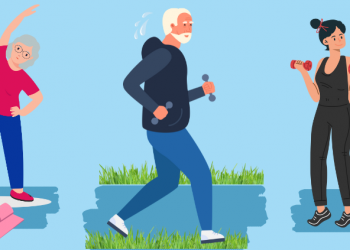How Social Connection Supports Longevity

Our closest family and friends are part of who we are in spirit and in health. These connections are essential aspects of successful aging, making Social Engagement a fundamental pillar of the Stanford Lifestyle Medicine philosophy.
“Our relationships form a lattice of support that constitutes the largest single factor in the overall well-being of most people,” says Steven Crane, MS, Stanford social engagement research scholar. “We need to prioritize showing up for one another, because when we don’t, loneliness and isolation can become chronic.”
Loneliness is a Health Risk Factor
Exacerbated by the COVID-19 pandemic, people are becoming more aware of how social isolation and loneliness are serious risk factors for their health. Not only can loneliness impact mental health, but the stress and behaviors that people assume during times of isolation can make them more vulnerable to disease and early mortality. According to the World Health Organization (WHO), social isolation is a growing public health issue that should be taken as seriously as more well-known issues like smoking, obesity, and sedentary lifestyles. The gravity of the “epidemic of loneliness” led the WHO to officially dedicate a taskforce to address loneliness in 2019. Following this initiative, many behavioral health scientists have dedicated much of their research to better understand the risks at hand.
A recent review article published by researchers at Rutgers University characterizes the psychological and physiological mechanisms of social connection and social isolation. For many species, including humans, research indicates that prolonged periods of isolation are associated with increased stress and related changes in brain structure. This heightened stress response is also linked with short- and long-term dysfunctions to the hypothalamic-pituitary-adrenal (HPA) axis, which helps regulate the autonomic nervous system, the immune system, and various other functional pathways. Research indicates that these changes to the HPA axis are similar to those that occur with early life adverse events, which are known to impact social and emotional regulation and reward processing throughout one’s life. Whereas acute cases of isolation tend to increase our motivation to connect with others, chronic loneliness is associated with a diminished desire for mutual connection and belonging, highlighting the importance of making social engagement a reliable factor in one’s lifestyle.
“Robust estimates indicate that loneliness affects anywhere from one third to well over half of people in industrialized societies,” says Crane. “While healthy networks of social connection provide powerful protective health effects, increasing odds of long-term survival by 50%, loneliness itself is associated with many distinct detrimental health impacts on sleep, physical health, and mental health.”
Social Connections Shield Us from Stress
The need for social connection is an innate part of human nature as we have evolved to associate belongingness and acceptance with a sense of security. The feel-good sensations that arise from spending time with friends and family are real rewards in regards to the neuroscience behind them. Positive connections are processed by corticostriatal circuits, which make up the brain pathways that keep people motivated to receive rewards and reach goals. This means that approval from others, like making someone laugh, is akin to a type of neural currency.
Obtaining a social reward, like a smile from a friend, also releases hormones like dopamine to produce feelings of happiness and joy. Dopamine-releasing neurons are activated in increasing amounts in the ventral tegmental area of the brain, which facilitates our ability to learn and form memories by reinforcing positive connections. In other words, the release of dopamine during positive social connections not only feels good, but it also encourages the brain to keep connecting, remembering, and reaping in the rewards. Even recalling the memories of these positive interactions is enough to activate the brain’s reward center.
Making social connection a pivotal part of one’s lifestyle can produce positive health benefits, and it is never too late to do so. The review article references the abundance of research reporting positive health outcomes in socially-connected groups compared to socially-isolated groups regardless of age, gender, and initial-health status. The researchers estimate that having strong and secure relationships not only increases our happiness but also our longevity by roughly 50 percent.
“My simplest advice is: if you want a friend, be a friend,” says Crane. “Finding some way you can offer kindness to others in a sustainable, healthy way is your best chance at building meaningful connections, which support us in building meaningful, flourishing lives.”



























